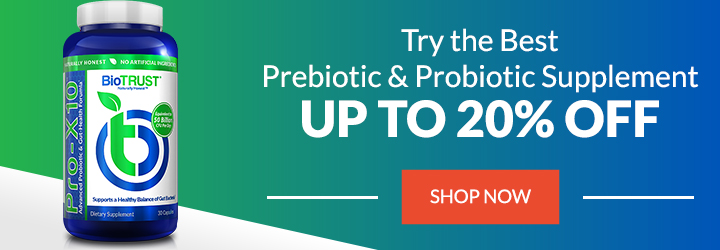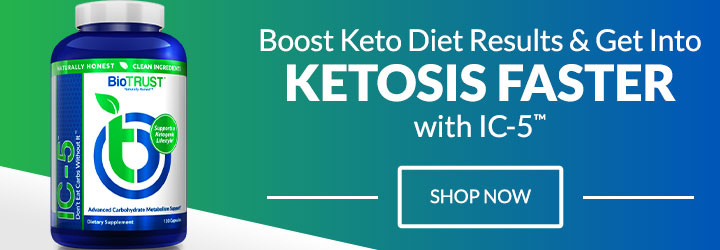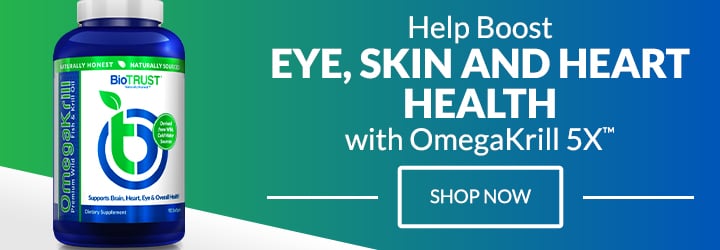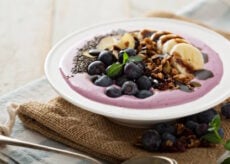Top 10 Supplements + 7 Strategies for Supporting the Immune System
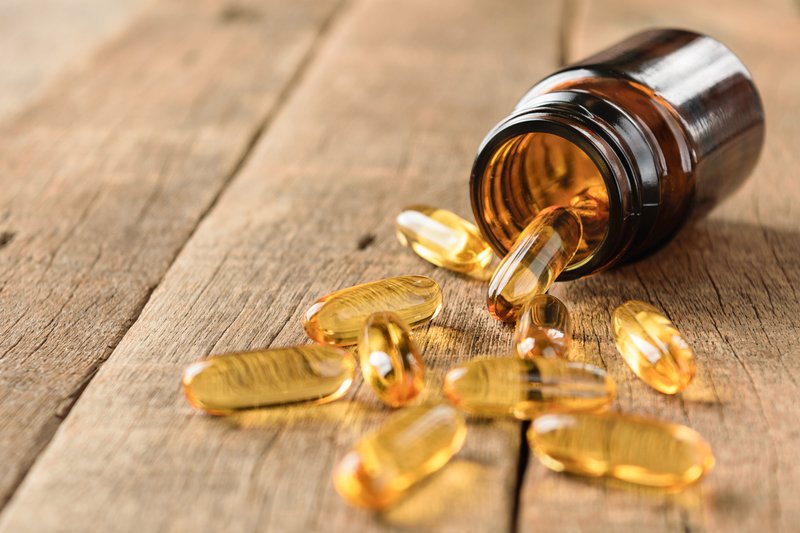
You’ve heard the news. You know what’s going on. I’m not going to rehash what you’ve already heard. You’re here for a reason, which is to discover ways you can bolster your internal defenses and improve your odds of staying healthy.
Without question, this time of year, one of the top questions folks ask me is what are the best supplements for supporting the immune system. Below, I’ll share my suggestions, which very much reflect my own personal immune-boosting arsenal. I hope you find this helpful, and if you have any questions or feedback, please don’t hesitate to post in the comments below.
Before moving into supplements to boost your immune system, let’s talk about some “big guns” that can really go a long way toward keeping you healthy. These are lifestyle and prevention strategies that can help optimize immune function or, more simply, lower your chances of having to fend off bad bugs in the first place.
7 Strategies to Support Your Immune System
1. Get obsessive about handwashing, and really, about good hygiene in general, to help control the spread of viruses like coronavirus. Scrub your hands for at least 20 seconds with soap and hot water and use hand sanitizers when you aren’t near a sink. (Hand sanitizers aren’t things you should always use, but in a time like this, the benefits likely outweigh the costs.)
And if you’re coughing or sneezing, be respectful. Cover your mouth and nose in the sleeve of your elbow, and keep your distance in public, or better yet, stay home if at all possible. And at home, clean and disinfect high-touch surfaces at least once daily.
Oh, and if you’re wondering about face masks, there are two types. Regular surgical masks aren’t effective for preventing you from getting the coronavirus because the virus is so small it can pass through the mask rather easily. The more advanced mask that provides better protection is called an N-95 respirator, which is a better choice but somewhat difficult to breathe through. And to be effective, it has to seal perfectly around the nose and mouth. If you aren’t sick, please save these for healthcare workouts and those who are sick.
2. Keep moving but don’t overdo it. Regular exercise is a powerful tool to strengthen the immune system. But too much heavy exercise—like soul-crushing workouts—is just as bad as being sedentary. Both can increase your odds of getting sick. So, exercise moderately for 30 to 60 minutes a day.
3. Chillax. Stress is a funny thing. It can enhance the immune system in the short term. But if it becomes chronic and persistent, it can suppress the immune system. Studies have shown, for example, that psychological stress actually raises the risk of illnesses like the common cold in a dose-dependent manner. In other words, the more stressed you are, the more likely you are to get sick.
So, make sure you’re properly managing stress by doing such things as meditating 10 – 30 minutes a day, practicing yoga, partaking in daily prayer, and practicing gratitude. Something as simple as taking three slow and deep breaths every hour, while thinking of something you’re grateful for, can lower stress hormones and improve immunity.
4. Get your beauty rest. If you want to increase your odds of getting infected with a virus like coronavirus, don’t get enough sleep. Sleeping fewer than seven hours can make you three TIMES more likely to get sick. Like stress, lack of sleep suppresses the immune system, as it can, among other things, reduce natural killer cell activity. Make sure you’re getting seven to nine hours of quality, deep sleep per night. You can increase the quality of your sleep by making sure your bedroom is dark, cool, and quiet. (Using a white noise machine or fan can also really help.)
5. Clean up your diet, which means eating healthful foods and ditching the junk food. For starters, load up on immune-boosting nutrients from foods, like vitamins A (sweet potatoes and carrots), C (citrus fruits and cruciferous veggies), D (eggs and mushrooms), and E (dark leafy greens), and minerals like zinc (beef and pumpkin seeds) and selenium (Brazil nuts and sardines).
On the other side of the coin, this is the perfect time to weed out refined carbohydrates (like added sugar and refined grains) and highly refined vegetable oils (like soybean, canola, corn, cottonseed, safflower, and sunflower oils), which contribute to persistent, unhealthy inflammation and impair the body’s natural immune response.
It’s also a good idea to limit (or better yet, avoid) alcohol, and of course, it’s best to avoid smoking.
6. Stay connected. This can be challenging, especially during dire times that warrant you to stay home and limit public gatherings. But the irony is that loneliness and social isolation are serious threats to immunity, lowering internal defenses, and making you more prone to getting sick.
For example, research published in the Proceedings of the National Academy of Sciences shows that loneliness can alter immune system cells in a way that increases susceptibility to illness.
On the other side of the coin, strong connections and social support nourish, protect, and support the immune system, perhaps through their potent stress-relieving properties. Challenging as it may be, make every effort to stay connected with those you care about—even if it’s through phone calls and virtual meetings. And while you’re at it, be a good neighbor. Check in with the members of your tribe to see how you can help.
7. Get outdoors. Distancing yourself from others and limiting your trips to public places does not mean you need to be holed up inside. That’s arguably one of the worst things you can do for your well-being and immune system.
According to the Environmental Protection Agency (EPA), the levels of indoor air pollutants are often two to five times higher than outdoor levels. In some cases, levels can exceed 100 times that of outdoor levels of the same pollutants. In other words, the air inside is often more harmful than the air outside.
Beyond that, spending time or exercising outdoors can boost mood, lower feelings of stress and anxiousness, boost energy levels, and work wonders for the immune system. For example, studies have shown that spending time in nature increases activity of natural killer cells (NK), which are critical components of the innate immune system. Scientists think that breathing in phytoncides—antimicrobial compounds released into the air by trees and other plants—increases levels of NK and their associated virus-killing compounds.
What Are Some Supplements that May Help?
No supplement is going to be a replacement for the proven preventive and immune-boosting strategies listing above. However, there are quite a few powerful staples, which can make a serious difference when it comes to stacking the odds in your favor. In some cases, they may help bolster your defenses to help you more effectively fend off pathogens. In other cases, they may play a tremendous role in reducing the severity and duration of symptoms.
[Note: In several instances, I’ll give very specific product recommendations. Many of the folks I work with ask me specifically for BioTRUST products as they’ve become accustomed to the quality, consistency, and efficacy. Even in those instances, I’ll make it a point to highlight the specific ingredients in those formulas that I feel are particularly useful for supporting the immune system and keeping you healthy.]
1. Pro-X10™
Considering the vast majority (upwards of 70%) of your immune system resides in your gut, it’s smart to supplement with probiotics, which help keep your gut in top form by supporting a healthy balance of gut microbes. Probiotics also support a healthy, high-functioning immune system by helping reinforce gut barrier function, supporting a healthy inflammatory response, promoting immunomodulatory activity, and enhancing antimicrobial activity.
2. Ageless Body®
Glutathione, which is found in Ageless Body, is recognized as one of the body’s most important antioxidant and detoxification factors. Normal levels of glutathione are essential for a robust, properly functioning immune system. Glutathione also increases levels of natural killer cells, which play a foundational role in the body’s immune response.
Ageless Body also provides CurcuWIN—a highly bioavailable form of curcumin, which is one of the most powerful tools to “spice up the immune system”—and Sensoril Ashwagandha, known for its stress-reducing effects, which are key to supporting an optimally functioning immune response.
Additionally, Ageless Body also contains CoQ10, which plays an essential role in the function of the mitochondria (the cellular power plants responsible for providing energy). This is important because the cells and tissues involved in immune function are highly energy-dependent and, therefore, require an adequate supply of CoQ10.
The other ingredients in Ageless Body also support mitochondria health and function, and along those lines, Ageless Body essentially helps to charge the batteries of the immune system.
3. Ageless Collagen Booster™
If there’s one staple virtually everyone should turn to for immune support, it’s zinc, which is perhaps the best recognized “immuno-nutrient,” as it’s involved in hundreds of metabolic processes, including the body’s immune responses. In addition to being a potent source of highly bioavailable zinc, Ageless Collagen Booster also provides vitamin C, which may be the most familiar immune-boosting nutrient.
Vitamin C is required by certain cells of the immune system, which require it to properly perform their functions. Research shows that supplemental vitamin C can both reduce the incidence of viral illnesses as well as the severity and duration of their symptoms.
Whenever I’ve been exposed to someone who’s sick or feel like I may have something coming on, I like to load up on zinc (acetate) lozenges, taking one every two to three wakeful hours. Additionally, during peak cold/flu season, I also switch to a liposomal vitamin C, which also provides phosphatidylcholine, an essential component of cell membranes (including those of the immune system). The use of phospholipids like phosphatidylcholine has been described as “greasing the wheels” of the adaptive immune system because of the essential role they play in smoothly-operating immune function.
4. IC-5™
In addition to helping maintain normal, healthy blood sugar levels (which is intricately tied to a healthy, properly-functioning immune system), IC-5 provides berberine, which provides broad-spectrum immune function support. Although it’s not in IC-5, sweet wormwood is another herb that provides immune support complementary to berberine, as it also helps maintain a healthy balance of normal bacteria and other microbes in the intestines.
5. Zen-Zzz™
Magnesium plays essential roles in both the non-specific (innate) and specific (acquired) immune responses. Plus, a healthy intake of magnesium is critical to support a proper, healthy stress response. An unhealthy stress response suppresses the immune system. In addition to highly bioavailable magnesium, Zen-Zzz also provides l-theanine, which further supports a healthy stress response.
6. Quercetin and Beta-Glucan
Quercetin, a powerful antioxidant bioflavonoid (found in apples, onions, teas, berries, and vegetables of the cabbage family), and beta-glucan, a soluble prebiotic fiber (found in oats and mushrooms), have complementary actions that favorably modulate immune function.
Their combined effects may be especially helpful in regulating the immune response during environmental exposures (including seasonal allergies) as they may assist in supporting healthy levels of inflammation and stabilizing mast cells and basophils. Note that both of these compounds can be found in small amounts in MetaboGreens®, which may help support immune balance through its broad-spectrum polyphenol blend.
7. OmegaKrill™
A healthy intake of omega-3s is essential for supporting a properly functioning immune system (e.g., supporting a healthy inflammatory response). In addition to being a robust source of omega-3s, OmegaKrill also features the powerful antioxidant Astaxanthin, which helps fortify the immune system. Specifically, studies have shown that supplementation with Astaxanthin supports a healthy immune response in healthy human subjects.
What’s more, OmegaKrill also provides a healthy dose of vitamin D, which has receptors located throughout the body, including the immune system. Along those lines, vitamin D influences both the innate and adaptive immune responses. That said, I do supplement with additional vitamin D3 (combined with the MK-7 form of vitamin K2) during the winter months and peak cold/flu season.
8. Elderberry, Echinacea, and Astragalus
This is one of my favorite immune-supporting trios. I typically drink echinacea tea daily during the winter and cold/flu season, and my family uses elderberry daily, typically in tincture form (but it’s also available as a syrup and in capsule form).
Echinacea benefits immune function by supporting normal activity of white blood cells and natural killer cells. It also promotes the ability of the immune system to response to foreign invaders. Echinacea has the added immune-boosting property of promoting healthy, resilient mucus membranes, which you can think of as a literal barrier, or fence, that keeps out unwanted visitors.
Elderberry, meanwhile, is best known for its beneficial effects for maintaining a healthy immune system. Its use is supported by a robust body of clinical trials, which have shown elderberry substantially reduces upper respiratory symptoms. Elderberry, a rich source of antioxidant flavonoids, supports the body’s natural defenses by activating the healthy immune system and helping to increase the production of cytokines and other important immune factors.
Used in traditional Chinese medicine for centuries, Astragalus promotes healthy immune function by supporting white blood cell production and function, as well as the production of T-cells. Astragalus also acts as an adaptogen to counter the broad-spectrum effects that stress has on the body, including the immune system.
9. Olive Leaf Extract and Oil of Oregano
Derived from the leaves of the olive tree, olive leaf extract contains compounds, namely oleuropein, that have demonstrated antioxidant and immune-enhancing properties. For instance, olive leaf extract can help maintain a healthy balance of cytokines, which are compounds secreted by cells of the immune system that act as chemical messengers, helping to regulate the body’s immune and inflammatory response.
When it comes to oil of oregano, this is a heavy hitter. It’s one I only sprinkle in occasionally—either once every couple of days or daily for only a couple of weeks at a time. And I always make sure to use a probiotic while I’m taking it. Oil of oregano has powerful antioxidant and intestinal-cleansing benefits. Along those lines, it supports the body’s normal defenses against the overgrowth of yeast, fungi, and unfriendly bacteria. Its antioxidant components, specifically carvacrol and thymol, may also be beneficial for supporting the immune system and a healthy response to inflammation.
10. Mushroom Extracts
An array of mushroom extracts have been shown to provide significant immune support, with some of the most prominently researched and effective being reishi, shiitake, turkey tail, cordyceps, and maitake.
Research has shown that mushroom extracts can increase the activity of various components of the immune system, including macrophages and natural killer cells, as well as increasing phagocytosis and the production of immune compounds that help promote healthy immune function. Scientists now believe the proteoglycans and polysaccharides—including beta-glucans—are the probable active ingredients in many mushroom species.
You can find mushroom extracts in a variety of effective forms, including capsules, liquids, and elixirs, all of which are capable of promoting optimal immune system health along with broad-spectrum physiological support.
Top Supplements & Strategies to Support Your immune System: A Recap
There you have it, my top tips and supplements for supporting the immune system. Certainly other ingredients could have—and arguably should have—made the list (such as l-lysine, l-glutamine, lactoferrin, and colostrum, for example). But I’m confident if you use the tools above, you’ll dramatically improve your chances of staying healthy, which is my number one goal as a health coach. I hope you and your loved ones stay well and keep calm amidst these unprecedented times and unchartered waters.


